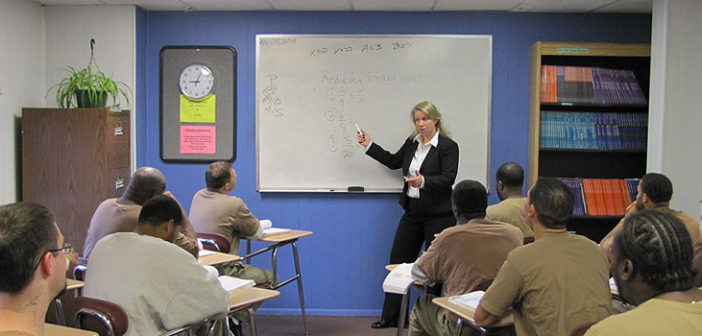By: Lester Williams
Do you believe education can reform prisoners? When someone is found guilty of a crime and thrown behind bars, they are stripped of many rights including the freedom to leave and to go to an educational institution.
The value of education should not be forgotten. Being able to be educated is a vital tool for many people to gain their independence, find a career and adapt to the modern world.
Education is a powerful blessing. The website Alliance for Excellent Education (all4ed.org) estimates that America “could save as much as $18.5 billion in annual crime costs if the high school male graduation rate increased by only five percentage points.”
Wouldn’t you want a second chance? Some prisoners right now have given up on ever being solid citizens because nobody is giving them any opportunities besides to rot away in their cell.
Life behind concrete walls can be torture. Living in prison can greatly affect a person’s ability to better themselves or live a normal life out of prison. This is due to the hostile environment caused by the inmates and even sometimes the prison staff.
According to www.aclu.org which acknowledges the inhuman practices in prisons says, “the United States has dramatically expanded its use of solitary confinement, even creating new “supermax” prisons designed to hold entire prison populations in extreme isolation.”
Solitary confinement can scare someone for life, to think it’s just one of many types of barbaric treatments some prisoners endure. Punishment like isolation make people question if prisoners are more likely to go back to a life of crime because of their inhuman treatment.
Governments need to acknowledge the consequences of their actions. Exposing prisoners to horrific punishments are more likely to lead to psychological trauma and resentment rather than rehabilitation.
The website prisonstudiesproject.org highlights, “Prison education is a means of rehabilitating and redirecting. If you release someone with the same skills with which she came in, she’s going to get involved in the same activities as she did before.”
A life of crime is tempting while incarcerated. An issue many prisons across the world face is keeping a controlled and stable environment. By keeping prison inmates active and busy such as by going to class, doing community service or playing sports, it can teach them cooperation, manners and how to be sensible adults.
Although many prisoners are dragged back into their old ways, some people still take it upon themselves to try and reform them. In California for example, it is the state colleges which give some prison inmates the opportunity to attend classes.
California has become a shining example of the benefits of educating inmates. The state has permitted a tuition fee waiver known as the “California College Promise Grant” which pays for prisoners to get educated.
This system has evolved from 2014 when only one prison in the state offered their inmates a chance to be educated, to 2017 where more than 30 prisons in the state now offer thousands of inmates an education.
This progress has captured the attention of several news sites such as fastcompany.com claiming “California’s Prison Education System is Yielding Impressive Results” and visaliatimesdelta.com suggesting “California leads the way in inmate education.”
Hope should be kept alive even within a locked cell. To some prisoners, education shows them that the world hasn’t given up on them.
According to Article 26 in the Universal Declaration of Human Rights, “Everyone has the right to education.” This fact should not be overlooked even to those who are left behind bars and concrete walls. Prisoners require an education if they ever desire to make a fresh new start.
Wouldn’t you still want to learn even if you had to do it in cuffs?





